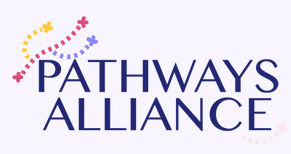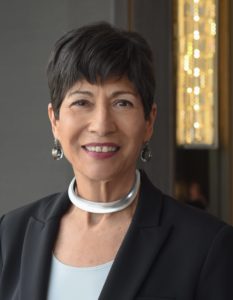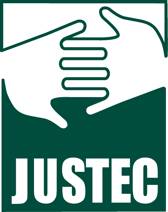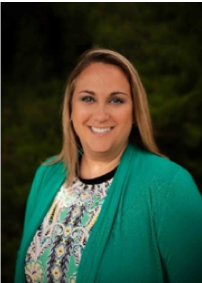08 Nov2022
A Webinar Hosted by AACTE and Digital Promise
By AACTE

Understanding learner variability helps disrupt the idea of a one-size-fits all approach and paves the way for more equitable teaching and learning, writes Jessica Jackson, director of professional learning for the Learner Variability Project at Digital Promise.
“The intersection of culturally responsive practice with the science of learner variability … also helps us understand why culturally responsive practices are necessary for reaching and embracing the whole learner,” Jackson explains.
20 Oct2022
By FutureEd
Teacher shortages dominated education headlines during the summer. The billions of dollars of federal pandemic-relief money states and school districts are pouring into the teaching force—and the funding’s substantial consequences for longstanding policies and practices in the more-than-three-million-member profession—have received far less attention.
11 Oct2022
By Keith Krueger
Historically, school and district information technology units have positions designed to enable and support devices and connectivity, but not cybersecurity. Cybersecurity represents a comprehensive challenge facing all staff in K-12 organizations and requires the creation of a culture of cybersecurity within each K-12 organization.
The Consortium for School Networking (CoSN) has released two new resources for K-12 schools and districts seeking to address the need for advanced cybersecurity skill sets within their technology teams.
04 Oct2022
By AACTE

There has never been a more critical time to work together to support public education and students’ success. AACTE is joining forces with Learning First Alliance and partners across the country to support a critical effort to help ensure a bright future for our children.
The Here for the Kids campaign brings together families, educators, and community members to shine a light on local public schools and tell the stories of the amazingly positive things happening in classrooms and school buildings nationwide.
04 Oct2022
By AACTE
Education systems must adapt and tailor its programming to meet the needs of every learner. The Collaboration for Effective Educator Development, Accountability, and Reform (CEEDAR), a technical assistance center, aims to successfully educate and train educator and leader preparation programs to support inclusive education. The center’s aim is to create quality education for every student — with a focus on preparing students with disabilities to achieve college and career-ready standards. This is done by implementing evidence-based practices within multi-tiered systems of support.
CEEDAR, an AACTE partner organization, recently announced two new resources based on evidence-based practices:
30 Aug2022
By AACTE

In announcing the National Partnership for Student Success, a bright spotlight has been put on the adults who serve young people in communities nationwide. This is a clarion call for more adults to step up and lean in to address students’ academic, emotional, social, and mental health needs.
In 2022, the American Institutes for Research (AIR) and a constellation of partner organizations launched the Power of Us Workforce Survey, a first-of-its-kind comprehensive workforce survey to get to know the people who are already working and volunteering with youth in afterschool and summer programs, in libraries, in affordable housing, in community centers, in schools, and anywhere young people need support.
22 Aug2022
By Natalie Khairallah
 Teacher residency programs seek to offer an innovative approach to teacher certification, shifting the landscape of education to better recruit and retain high-quality teachers. These residencies can help attract a diverse pool of teachers — aiming to offset the shortage crisis and address the immediate staffing needs — by offering a supportive and affordable path to teaching.
Teacher residency programs seek to offer an innovative approach to teacher certification, shifting the landscape of education to better recruit and retain high-quality teachers. These residencies can help attract a diverse pool of teachers — aiming to offset the shortage crisis and address the immediate staffing needs — by offering a supportive and affordable path to teaching.
02 Aug2022
By Natalie Khairallah
 Over the past several years, teacher residency programs have shown immense promise meeting the needs of future teachers and students across the country. However, with the range of different features offered by these programs, an exact definition of teacher residencies has been difficult to identify.
Over the past several years, teacher residency programs have shown immense promise meeting the needs of future teachers and students across the country. However, with the range of different features offered by these programs, an exact definition of teacher residencies has been difficult to identify.
26 Jul2022
By Margaret Caspe and Reyna Hernandez
Last summer, the National Association for Family School and Community Engagement (NAFSCE) released, in partnership with AACTE and other vital partners, findings of our national survey of educator preparation programs. We thank many of the AACTE members who responded to the survey the purpose of which was to investigate how educators are prepared to engage families and communities in their practice. Results of the research showed that only half of educator preparation programs have a standalone course on family and community engagement and nearly all struggle to embed family and community engagement topics throughout their curriculum meaningfully. This is unfortunate, particularly in light of the teacher shortage crisis, given that strong respectful relationships with families and communities are key reasons that educators choose to stay in the profession.
19 Jul2022
By Natalie Khairallah
 As school districts prepare for the 2022-23 school year, policymakers are determined to prioritize comprehensive solutions to address staffing shortages, a long-standing issue exacerbated during the pandemic.
As school districts prepare for the 2022-23 school year, policymakers are determined to prioritize comprehensive solutions to address staffing shortages, a long-standing issue exacerbated during the pandemic.
AACTE President and CEO Lynn M. Gangone recently shared insight on this topic at a virtual session hosted by the National Governor Association’s (NGA) Community Renewal Task Force. Led by Co-chair and Missouri Governor Mike Parson, the discussion also included Penny Schwinn, Tennessee commissioner of education, and Roberto Rodriquez, assistant secretary of planning, evaluation, and policy Development at the U.S. Department of Education.
11 Jul2022
By Kate Cochran and Jacqueline Rodriguez
The National Partnership for Student Success is a public-private partnership committed to providing the supports that will help our students succeed and specifically addresses the ability for students to thrive post-COVID. AACTE has proudly joined the National Partnership for Student Success as a Champion of the initiative.
30 Jun2022
By Natalie Khairallah
 Educators in the United States and Japan are invited to register for the Japan-U.S. Teacher Education Consortium’s 32nd conference, JUSTEC 2022, which will take place September 23 – 25. This year’s three-day conference is supported by AACTE; the U.S. Embassy, Tokyo; and the Ministry of Education, Culture, Sports, Science, and Technology, Japan. It will draw its focus on the theme, “Collaborative Teacher Education in the United States and Japan in the Era of Uncertainties.” Register by August 15 to reserve your spot.
Educators in the United States and Japan are invited to register for the Japan-U.S. Teacher Education Consortium’s 32nd conference, JUSTEC 2022, which will take place September 23 – 25. This year’s three-day conference is supported by AACTE; the U.S. Embassy, Tokyo; and the Ministry of Education, Culture, Sports, Science, and Technology, Japan. It will draw its focus on the theme, “Collaborative Teacher Education in the United States and Japan in the Era of Uncertainties.” Register by August 15 to reserve your spot.
28 Jun2022
By Natalie Khairallah
 The Council of State Governments (CSG) is partnering with the Department of Defense and the National Association of State Directors of Teacher Education and Certification to develop the Interstate Teaching Mobility Compact (ITMC) — a new interstate compact — to help offset the steep shortage of teachers across the nation.
The Council of State Governments (CSG) is partnering with the Department of Defense and the National Association of State Directors of Teacher Education and Certification to develop the Interstate Teaching Mobility Compact (ITMC) — a new interstate compact — to help offset the steep shortage of teachers across the nation.
The ITMC is a legal contract between two compact member states that will allow teachers greater mobility and more employment opportunities inside the classroom by eliminating additional licensing and testing barriers that would be typically required.
28 Jun2022
By Natalie Khairallah
Among the many challenges K-12 educators are gearing up for this upcoming academic year, building more equitable, inclusive schools is of utmost priority. The Massachusetts Institute of Technology (MIT) is proposing a new project for the U.S. Department of Education’s Innovation and Research program to implement and test a whole-school program called “Becoming a More Equitable Educator: Mindsets and Practice.”
MIT invites all district school administrators, teachers, and staff to participate in this 12-16 hour online course — and share with any partnering district.
17 Jun2022
By Lisa Bisogno
 AACTE’s 2022 Washington Week was by far the most productive, inspirational, and collaborative Washington Week than those I previously attended. The culmination of Holmes Scholars, State Leaders Institute (SLI), and Day on the Hill allowed scholars, deans, faculty, and state affiliate leaders to discuss and gather new perspectives on the three strands:
AACTE’s 2022 Washington Week was by far the most productive, inspirational, and collaborative Washington Week than those I previously attended. The culmination of Holmes Scholars, State Leaders Institute (SLI), and Day on the Hill allowed scholars, deans, faculty, and state affiliate leaders to discuss and gather new perspectives on the three strands:
- Censorship
- Educator shortage
- Educator diversity
A sense of unity and gaiety could be felt as state teams worked together to plan their discussion about legislation priorities and strand topics during congressional visits with senators and congressmen/women.















